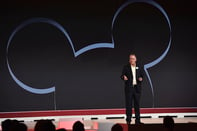Published on
Competency Based Education: Moving Adult Students Towards Credentials and Degrees

The move for colleges and universities towards competency-based education (CBE) makes a lot of sense for adult learners. CBE removes time as the constant of learning and makes it a variable. At its core, CBE is designed to allow students to move through curriculum at a pace that works for them while not being bound by the normal academic calendar. For far too many adult learners, the normal academic calendar doesn’t fit the demands of paying the bills, taking care of the kids and other general life demands.
At Salt Lake Community College (SLCC), we are currently undertaking a massive transformation of shifting our short-term, workforce-based training programs from a clock-hour (seat-time) method to a CBE modality. We believe that CBE can work in many, if not all areas of the college; however, this area seemed to be the most logical place to start. The School of Applied Technology (SAT) within SLCC awards short-term, non-credit certificates to students looking to enhance their current skill set or re-train for better paying jobs in high-demand, high-wage industries. The average age of the general population of students at SLCC is 25 while the average age of students in the SAT is over 35. Given the age difference and the fact that many of the adult learners returning to school bring back skills from prior work experience, CBE seems like a perfect fit.
Our CBE model is hybrid in nature and requires students to engage in “weekly meaningful contact” with our faculty. Weekly meaningful contact at SLCC means that students and faculty must have course-related contact for at least one hour per week. We have found that maintaining weekly contact with our students provides the best chance for them to be successful. Most students in the CBE programs show up much more than one hour per week. Students are encouraged to show up as often as they need. In addition, many of the practical exams are demonstrated on specialized equipment that is not available outside the classroom. Our classrooms are staffed with faculty (both adjunct and full-time) from 8 a.m. to 8 p.m., Monday-Thursday most weeks throughout the year. This flexible schedule gives students the ability to pick times most convenient for them and still maintain a work or home schedule while attending school.
Further, the CBE programs at SLCC are open enrollment. This means that new students can start on most Mondays throughout the year, not just when the semester begins. Although some of the work can be done in an online environment, it is important to note that these programs are not online. Most, if not all, of the practical exams must be completed in person and signed off on by a faculty member.
So, how does CBE help the adult learner? Simply put, adults who return to school with skills they’ve learned have the ability to move through the curriculum at a much faster pace than those who may not have the skills from a prior career. Students move forward in the curriculum as soon as they’ve mastered the material, not when the calendar dictates that it’s time to move on. This allows those with prior experience the ability to not have to waste time on areas they can demonstrate mastery in and move forward quicker. In this way, CBE acts as its own version of Prior Learning Assessment (PLA). By allowing students to demonstrate mastery on their schedule and not the college’s, they are “proving” their prior learning from other jobs or previous schooling.
What does CBE mean for those with some college and no credential? It means that these students now have the ability to earn a degree or credential without having to backtrack on prior coursework or skills they’ve already mastered. It opens up the door to a quicker way for those with prior learning to move towards completion of a degree or certificate. We feel that CBE is a great way to engage those adult learners with some college but no credential and push them to come back and complete what they’ve already started—even if the skills they acquired were on the job, not in the classroom.
As a Round IV TAACCCT Grant recipient, SLCC is in the middle of transitioning 20 of our workforce programs to CBE. As of this date, we are halfway there, with three to four more programs moving to the CBE model in early 2016. Looking forward, SLCC hopes to eventually launch full CBE Associate Degree programs. This will allow us to give our workforce students a pathway to degrees as well as a general option for those students wishing to move faster than the normal academic calendar.
Because of the enormous potential of CBE for accelerating student success SLCC is committed to making sure we are able to deliver on the promise of helping adult learners move towards completion and towards a better career and future!
Author Perspective: Administrator
Author Perspective: Community College



